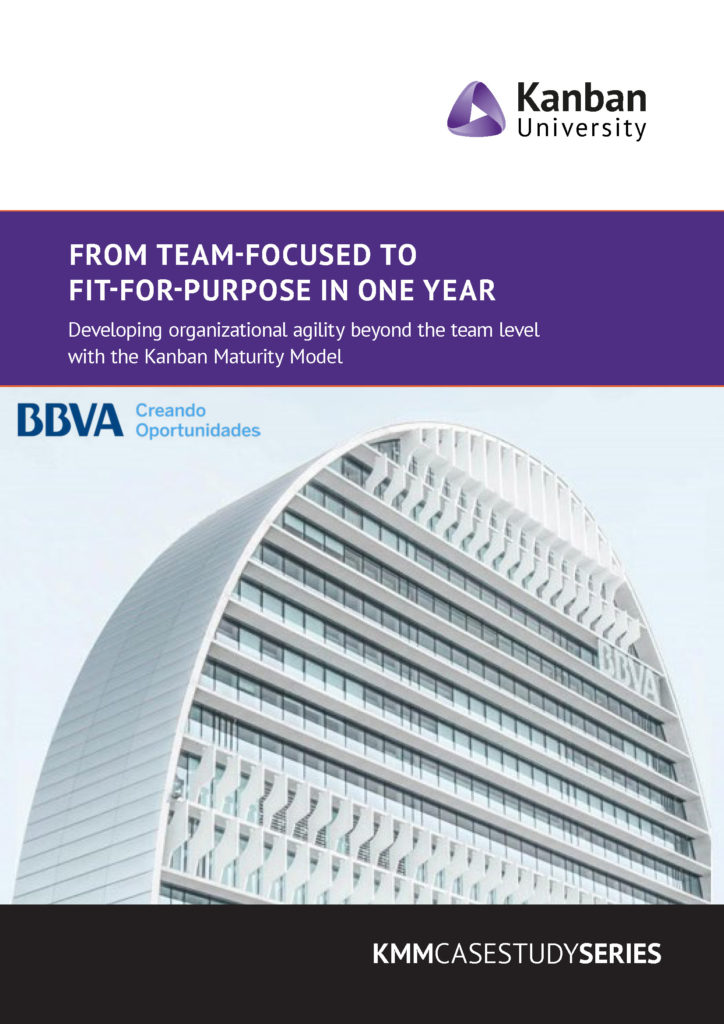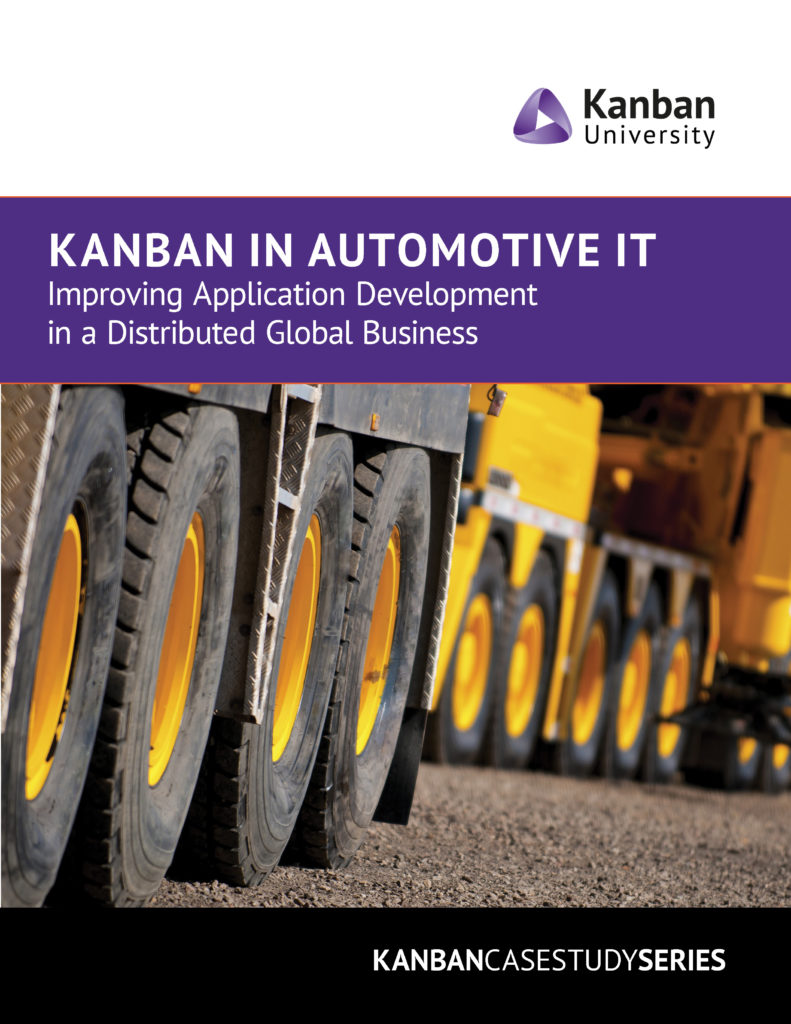CASE STUDIES
Kanban University case study series provides first hand reporting on the Kanban Method’s in practice.
KANBAN AT VANGUARD
An Experience Report
Vanguard, a prominent investment management company, developed a lean business model to promote efficient workflows and enhance value delivery. The model, rooted in lean and agile approaches, sparked behavioral change across the organization, from project teams to management. The transformation also led to an unexpected evolution using Kanban to improve Scrum, revealing Kanban’s effectiveness in aligning with Vanguard’s goals. Indeed, the financial services firm found that its teams that adopted Kanban were more motivated and successful at delighting customers and better equipped to circumvent a common challenge observed in Vanguard – the plateauing of performance which was coined “Scrum stall.” The results were measurable and dramatic – teams reported an amazing 4 x improvement in delivery throughput with 1/4 the average lead time relative to the Scrum baseline.
FROM TEAM-FOCUSED TO FIT-FOR-PURPOSE IN ONE YEAR
Developing organizational agility beyond the team level with the Kanban Maturity Model
BBVA, one of the world’s largest international banks, was a pioneer in introducing Agile methods in the global banking sector. But with more than 30,000 employees engaged in Agile work at any given time, the Spanish multinational firm soon found itself overburdened and managing dependencies among its many teams. By incorporating the Kanban Method and the Kanban Maturity Model, BBVA grew to better understand its demand and capability and evolved into a more Agile and customer-driven company.
KANBAN TRANSFORMS MICROSOFT
IT Services, Defying Geographic Challenges
The belief that Kanban only works with small, co-located teams is a persistent myth that Microsoft’s XIT Sustaining Engineering department helped debunk in dramatic fashion. After successfully introducing Microsoft’s first Kanban program, the Sustaining Engineering team, which handles internal change requests across different time zones, went from having the company’s worst service record to its best despite being geographically disbursed, proving the adaptability and effectiveness of Kanban principles.
KANBAN AT BLIZZARD SPORT
Responding Faster in an Uncertain Market
Austrian sports equipment company Blizzard Sport, founded in 1945, was acquired by Italy’s Tecnica Group in 2006 due to an unusually warm winter in the Alps that year, which piled up unsold inventory and threatened its solvency. Blizzard’s acquisition marked a key turning point for the company, leading to a transformative journey that saw the introduction of lean manufacturing principles and the Kanban Method, which shifted Blizzard’s culture toward continuous improvement and employee empowerment.
KANBAN IN AUTOMOTIVE IT
Improving Application Development in a Distributed Global Business
Volvo Group, a leading global transportation and construction equipment provider, originally took a traditional approach to maintaining its online system for processing warranty claims submitted by owners of commercial trucks and buses. When warranty claims spiked, the system’s IT team would struggled to respond, resulting in unhappy customers who complained of losing money. Introducing Kanban brought clarity to the team’s workflow and increased efficiency, accelerating customer delight.
FROM ONE STAR REVIEWS TO FIVE:
Mobile.de’s Kanban Journey
Mobile.de, one of the first online marketplaces for buying and selling vehicles in Germany, wasn’t a runaway success when it came to their iPhone app. Ralf Tomczak, mobile.de’s chief technology officer, was shocked at how many app downloads were followed by harsh user reviews. “We knew our first mobile application could be better,” he said. Thus began Mobile.
de’s evolutionary journey through Kanban, propelling its app from one star to five star reviews.
KANBAN AT NET-A-PORTER
Regaining the Control of Flow
NET-A-PORTER, an online retailer and curator of luxury fashion brands, became an influencer of a different sort when its technology team adopted the Kanban Method.The team often struggled to deliver quality work while operating under the requirement to deliver things within a biweekly timeframe. Kanban boosted the team’s ability to deliver quality work while also creating a more relaxed, collaborative, and purpose-driven work environment.
KANBAN HELPS SOFTWARE SERVICES COMPANY
Adapt to Market Change, Expand Offerings
Markets are never static and change over time, forcing businesses to adapt in order to succeed. That can mean pivoting to a new product line or retooling an entire business plan. No company knows this better than Austrian software developer VisoTech, who responded to changing energy markets with new offerings, only to find itself operationally slow to adapt. VisoTech leveraged the Kanban Method to visualize and streamline its workflows. By using these tools from the Kanban Method, VisoTech experienced boosted productivity while continuously adapting to meet changing client demand.
Interested in staying up to date on the latest Kanban News and Resources? Sign up for our mailing list today!










